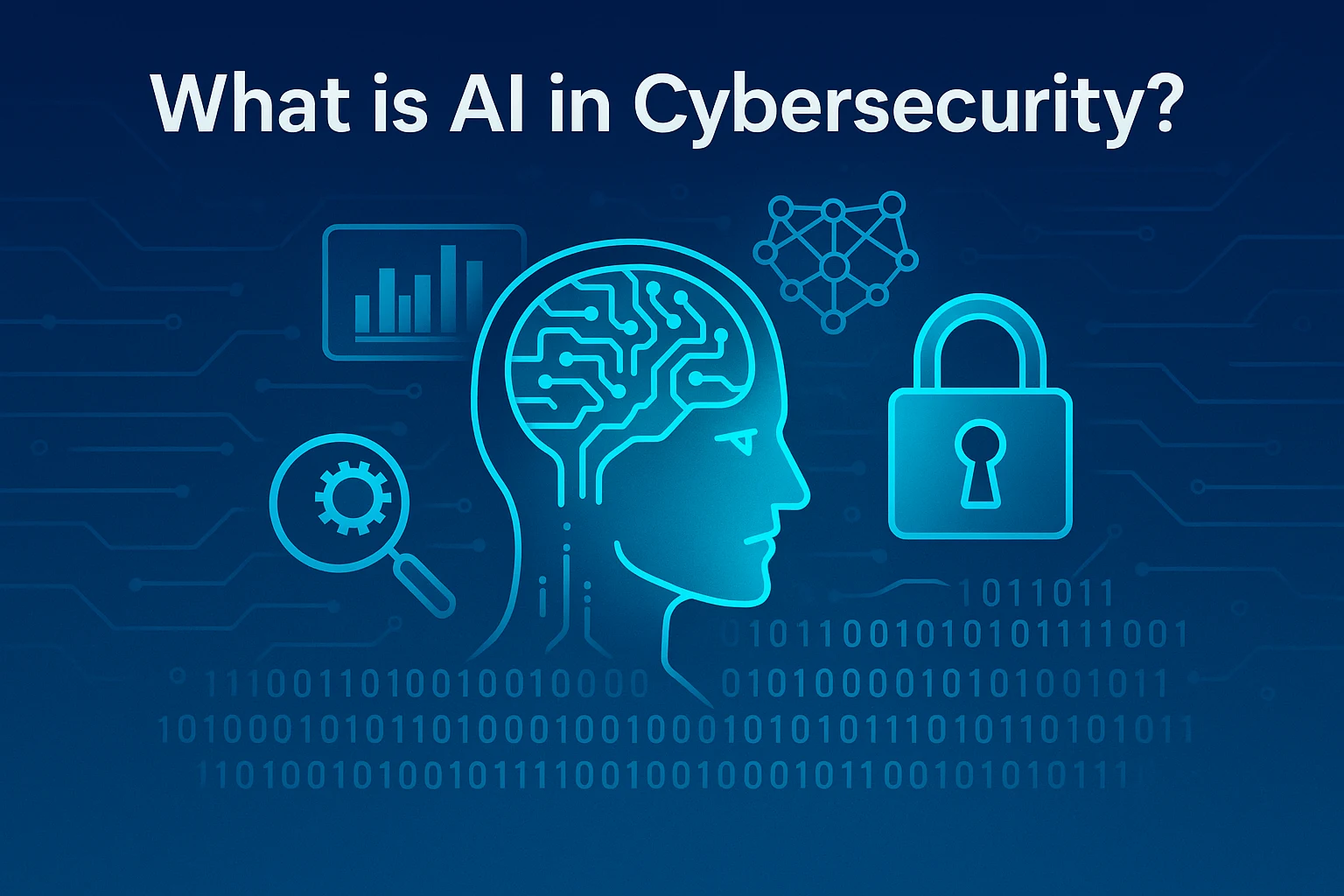In today’s hyper-connected world, almost every activity—from messaging friends on social media to settling electricity bills—takes place online.
But as digital transformation accelerates, so do the threats hiding in its shadows. Cybercriminals are evolving, launching sophisticated attacks using phishing, data breaches, ransomware, and even social engineering to exploit vulnerabilities in individuals, companies, and governments.
To counter these growing threats, Artificial Intelligence (AI) is stepping into the cybersecurity space as a powerful ally. It is helping build digital defense systems that are proactive, precise, and remarkably fast—capable of detecting and blocking malicious activities in real time.
AI in cybersecurity refers to the use of intelligent systems that can analyze vast amounts of data to identify and neutralize cyber threats. These systems are trained to look for anomalies—such as abnormal login patterns, unfamiliar IP addresses, or unusual file behavior—and act immediately to contain threats.
Using machine learning (ML), AI systems improve over time, learning to distinguish between normal behavior and potential attacks. In many modern enterprises, AI now powers intrusion detection systems, fraud prevention tools, and endpoint protection platforms.
Also Read; TRA Sets Deadline for Online Sellers to Register
One popular application is AI’s use in analyzing natural language, which helps detect email fraud or fake websites that mimic legitimate services—a common trick in phishing campaigns.
Around the world, AI tools are already helping organizations stay ahead of hackers. For instance, financial institutions are leveraging AI to detect credit card fraud by monitoring transaction behavior. Telecom firms use it to prevent SIM swap fraud, and governments apply it in securing critical infrastructure like water, energy, and communication networks.
However, this technological leap also comes with risks. Deepfakes—AI-generated synthetic videos—have emerged as a cybersecurity threat, capable of spreading disinformation or manipulating identity for fraud or political gain.
Tanzania is making steady strides in incorporating AI into its digital transformation and cybersecurity strategy. Through partnerships with international institutions such as UNESCO, the country has started drafting a National AI Policy, focusing on ethics, infrastructure, and security.
According to the Tanzania Communications Regulatory Authority (TCRA), the country has seen a rise in mobile and internet usage, which also increases the attack surface for cybercriminals. With more digital services—from e-Government platforms to mobile money—the need for advanced cybersecurity tools like AI has never been greater.
Government efforts include:
- Establishing Tier III Data Centres for secure digital storage.
- Training local tech experts in AI and digital forensics.
- Rolling out awareness programs on safe internet practices.
While AI offers a strong defense, experts warn that threat actors are also using the same technologies. AI-powered cyberattacks are becoming harder to trace and more damaging, raising the stakes in what some call the “cyber arms race.”
The challenge for countries like Tanzania lies not just in deploying AI, but in ensuring it is used ethically, transparently, and in ways that protect citizens without violating their digital rights.







